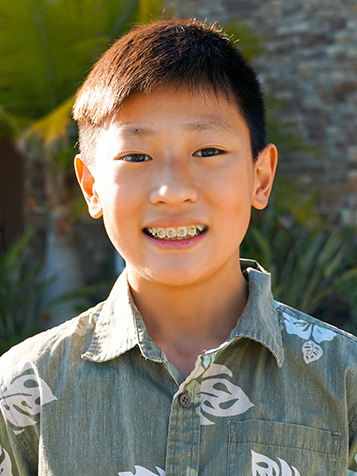Early Orthodontic Treatment
Early Orthodontic Treatment for Children
Early treatment is necessary for some patients but not for all patients. It is done while the patient still has some baby teeth before all permanent teeth have erupted. The timing of orthodontic treatment depends on each patient’s unique circumstances.
What is the difference between early orthodontic treatment and regular orthodontic treatment? Why might my child need early treatment? How will early treatment benefit my child in the long run?
These are just a few of the questions surrounding the topic of early orthodontic treatment for children. The American Association of Orthodontists recommends that children see an orthodontist for an Initial Evaluation when they are 7 yrs. old. At this point the orthodontist will take a Panoramic Radiograph to evaluate the development of the teeth and will determine whether your child needs early orthodontic treatment or if its better to wait until all permanent teeth erupt. This Initial Appointment is complimentary.
Early treatment typically begins around age eight or nine and it may involve something as simple as a Space Maintainer and/or extractions of baby teeth to aid the eruption of the permanent teeth. One of the goals of early treatment is to help make room for the permanent teeth to come in properly.
How to tell if your child may need early orthodontic treatment:
- Early or late loss of baby teeth (your child should typically start losing teeth around age 6-7, and will have all permanent teeth around age 13)
- Difficulty chewing and/or biting
- Mouth-breathing
- Your child continues sucking his or her thumb after age five
- Speech impediments
- Protruding teeth
- Teeth that don't come together in a normal manner or even at all
- Shifting of the jaw when your child opens or closes his or her mouth (crossbites)
- Crowded front teeth around age seven or eight
What causes orthodontic problems, and how will early treatment benefit my child?
Orthodontic problems such as crowding of the teeth, too much space between the teeth, jaw growth problems, protruding teeth, and bad bites can be inherited or caused by injury to the mouth, early or late loss of baby teeth, or thumb-sucking habits amongst others.
Most children lose all their baby teeth by age 13, and by the end of their teen years, the jaw bones have usually stopped growing.
If your child is between the ages of seven and eight and shows signs of needing orthodontic care, or if you have been directed by your family dentist to visit the orthodontist, please contact our practice to schedule an appointment. Our team will provide your child with an appointment for the Initial Evaluation and Dr. Mussa will discuss with you the best steps to take toward caring for your child's smile.

